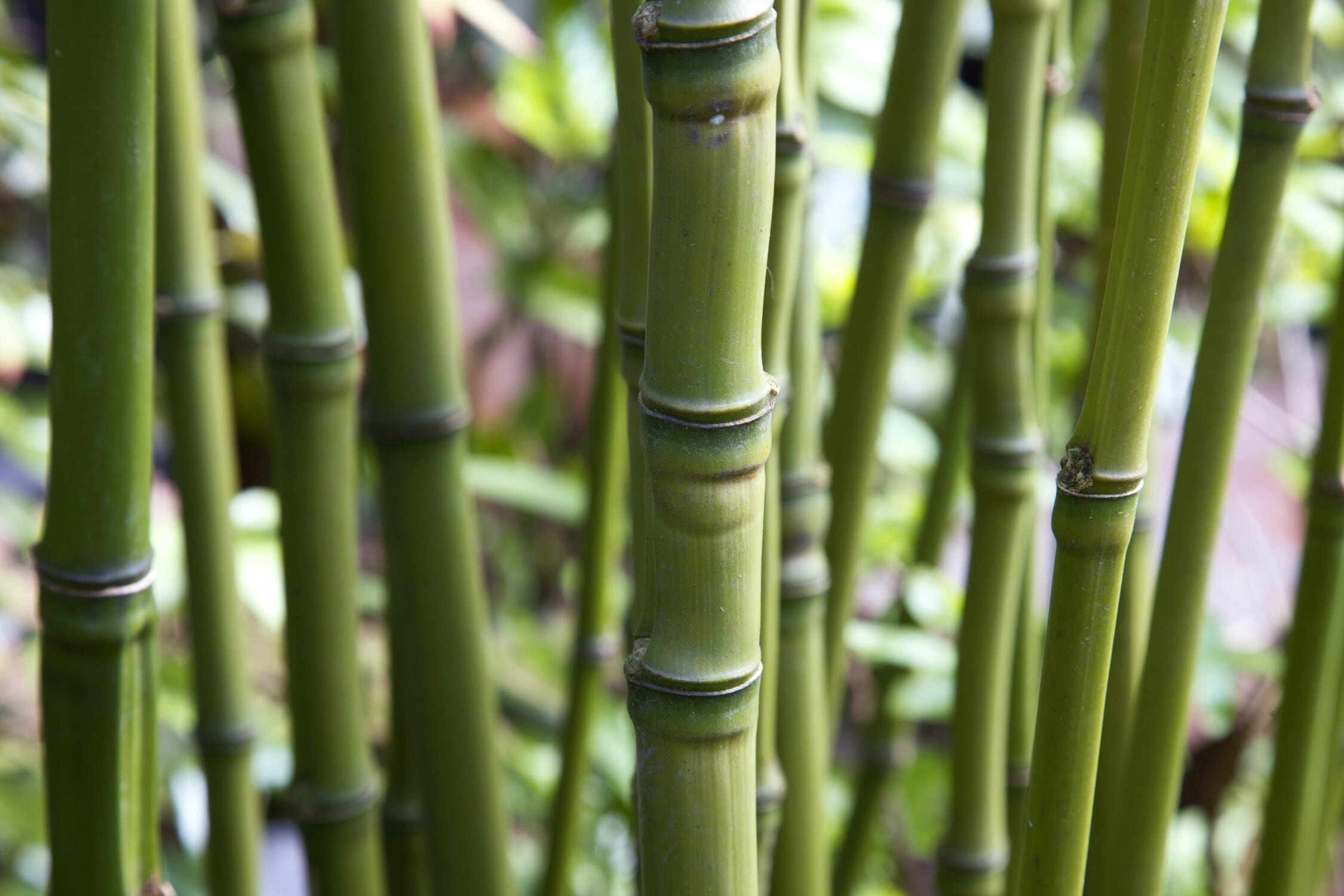
Phyllostachys aurea
Phyllostachys aurea or "Golden Bamboo", is a bamboo species native to China and Vietnam. It is a graceful bamboo producing large clumps of bright green canes becoming yellowish with age and exposure. The culms are easily identified by their characteristic compressed internodes in the lower part of the canes which have a tortoiseshell-like appearance.
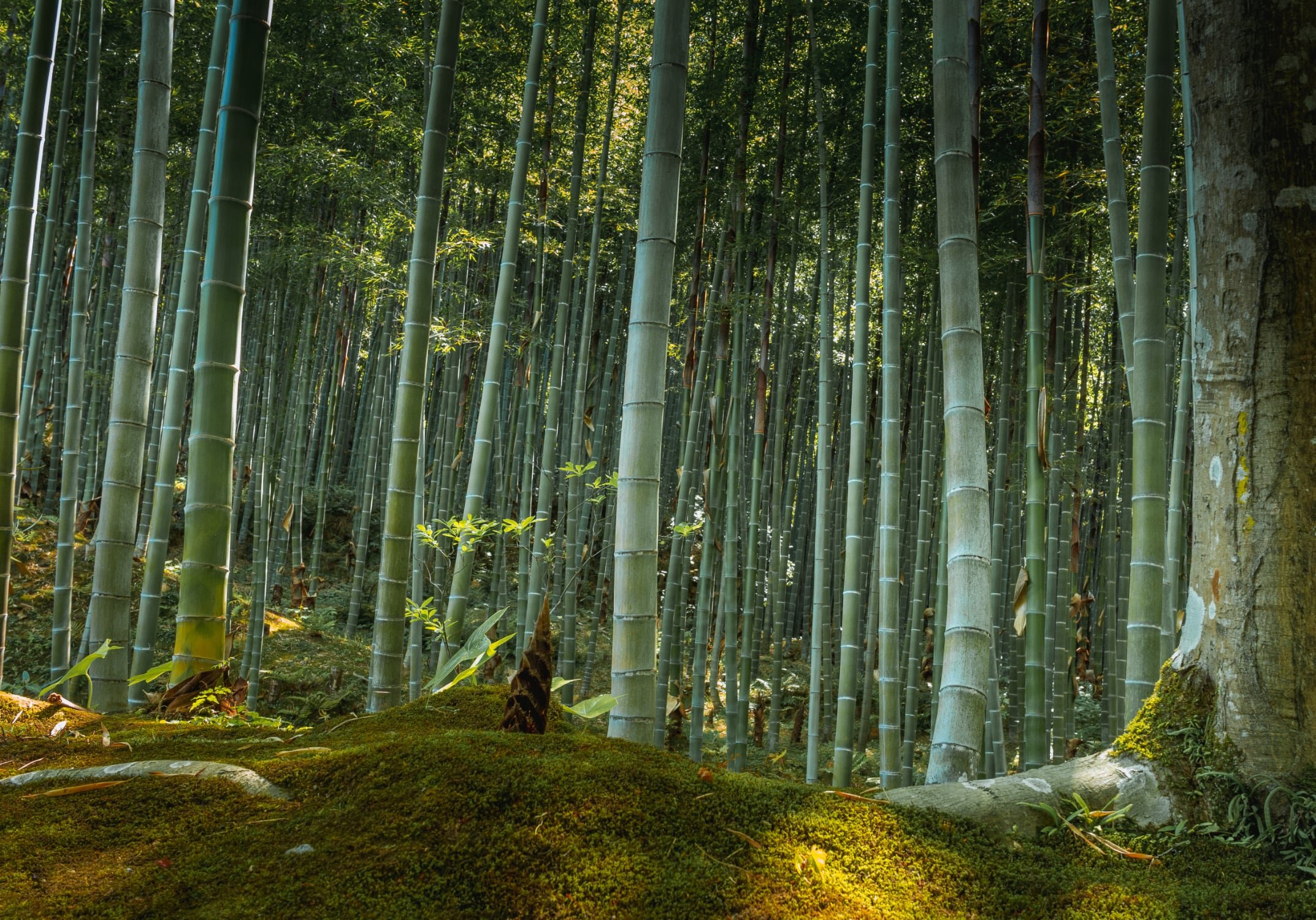
Phyllostachys edulis
Phyllostachys edulis, commonly known as Moso Bamboo, or Tortoise-shell Bamboo, is a temperate species of giant timber bamboo native to China and Taiwan. It is the largest temperate bamboo on earth and the most economically important bamboo in China.
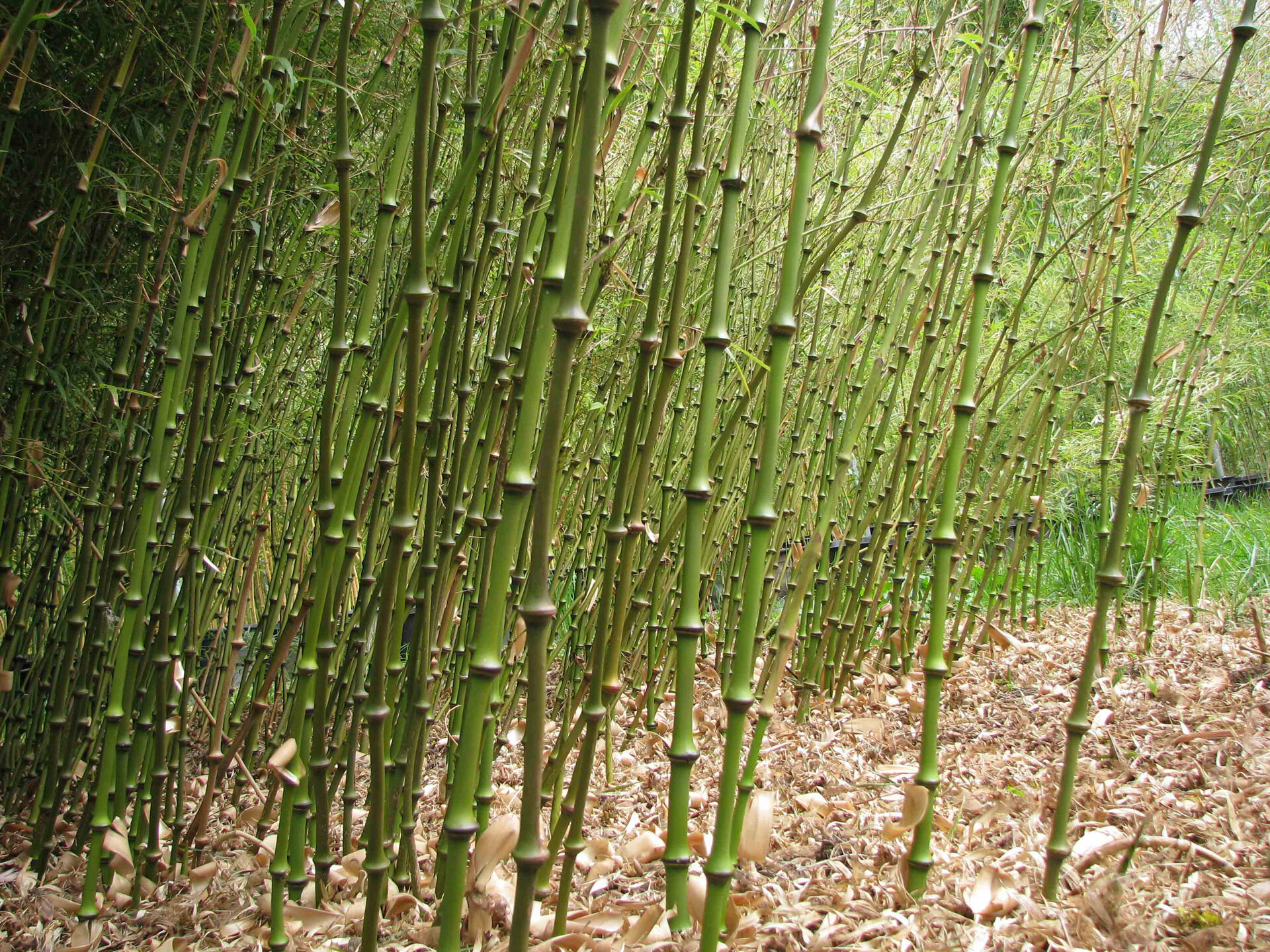
Chimonobambusa
Bamboo species of the genus Chimonobambusa are running bamboos with swollen nodes that bear thorns in many species, they have 3 branches at the nodes.
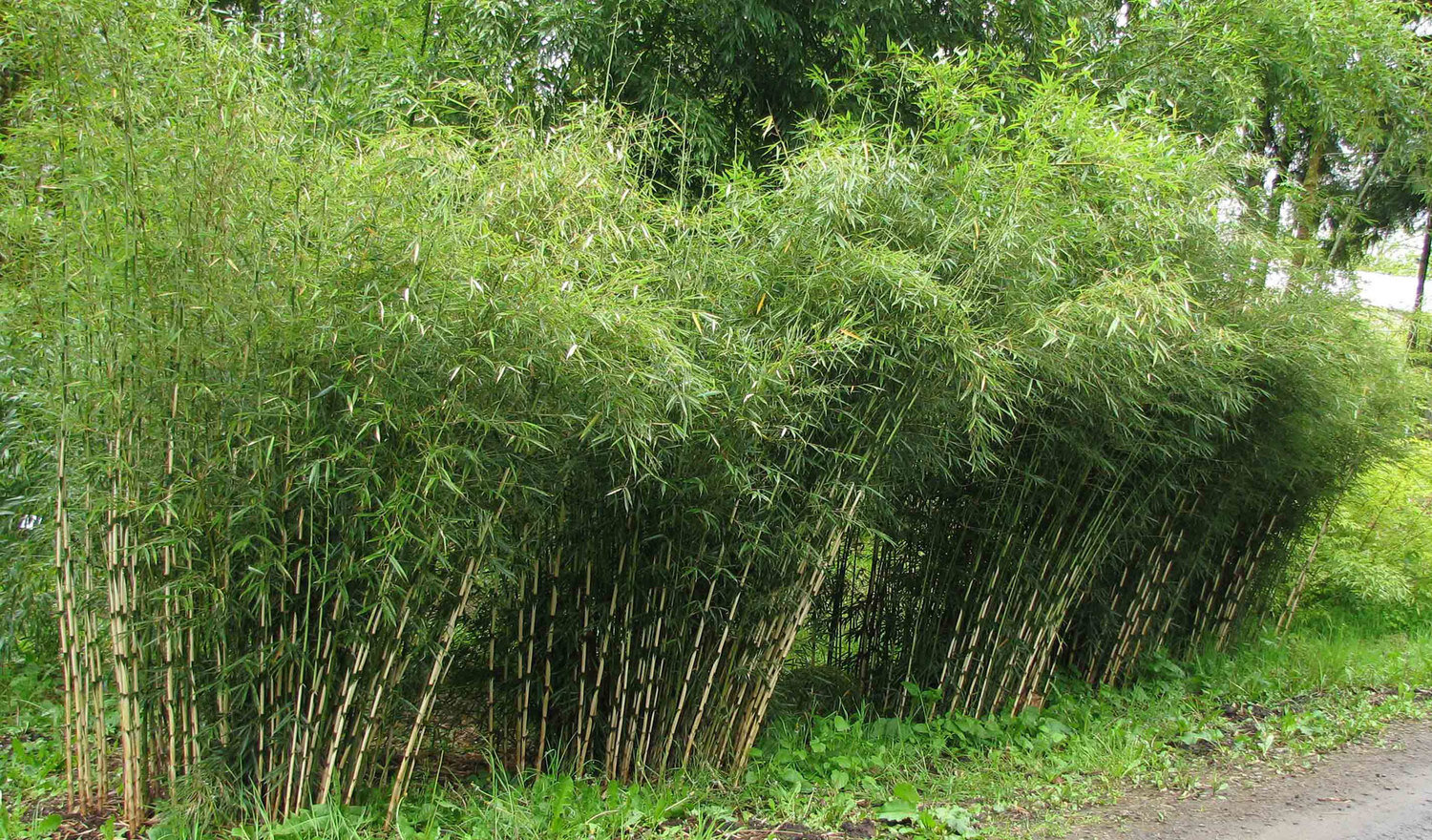
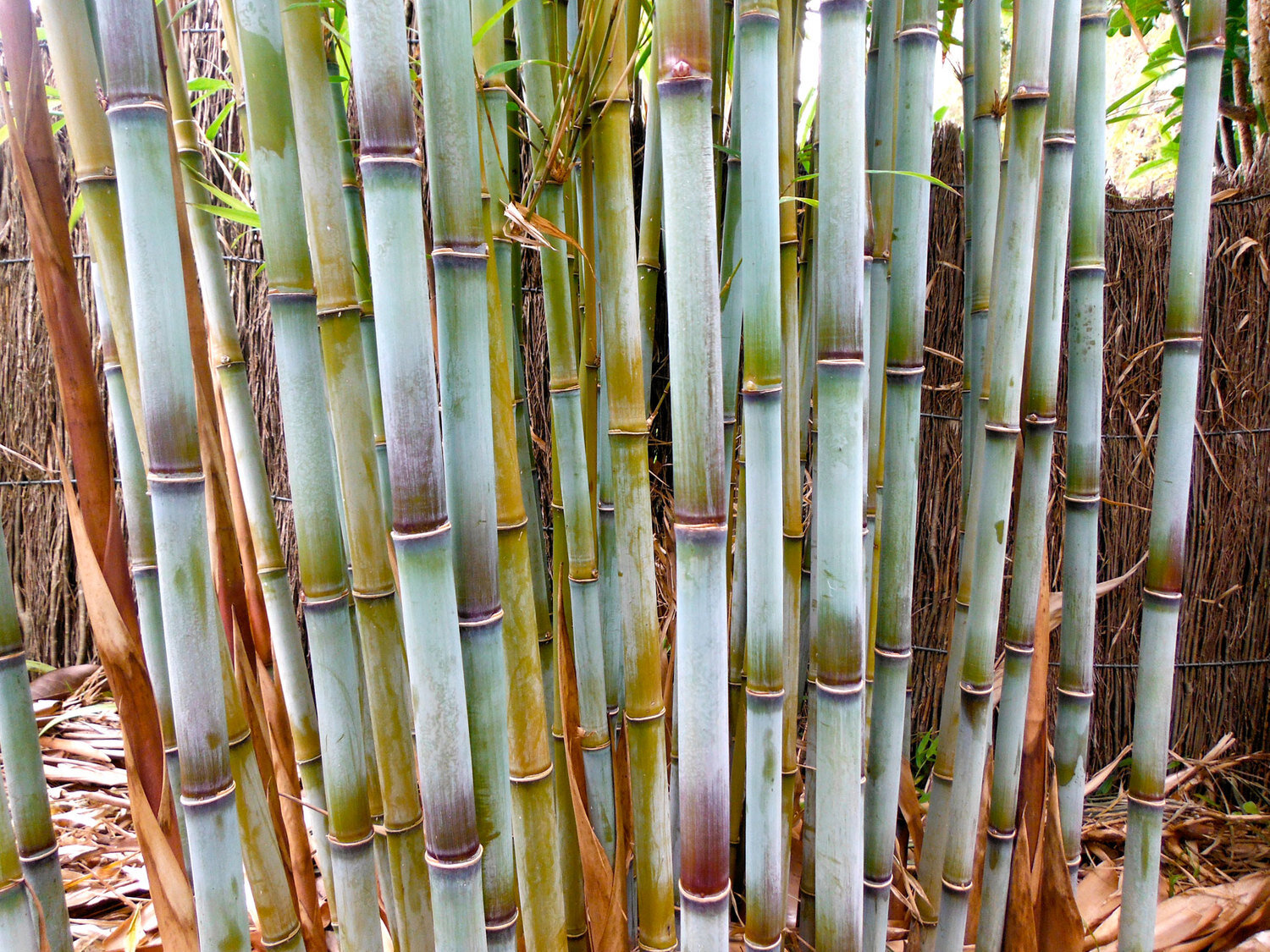
Himalayacalamus
Bamboos species of the genus Himalayacalamus are temperate mountain clumping bamboos. They are found growing at lower altitudes of the Himalaya; India, Nepal, Bhutan, and China.
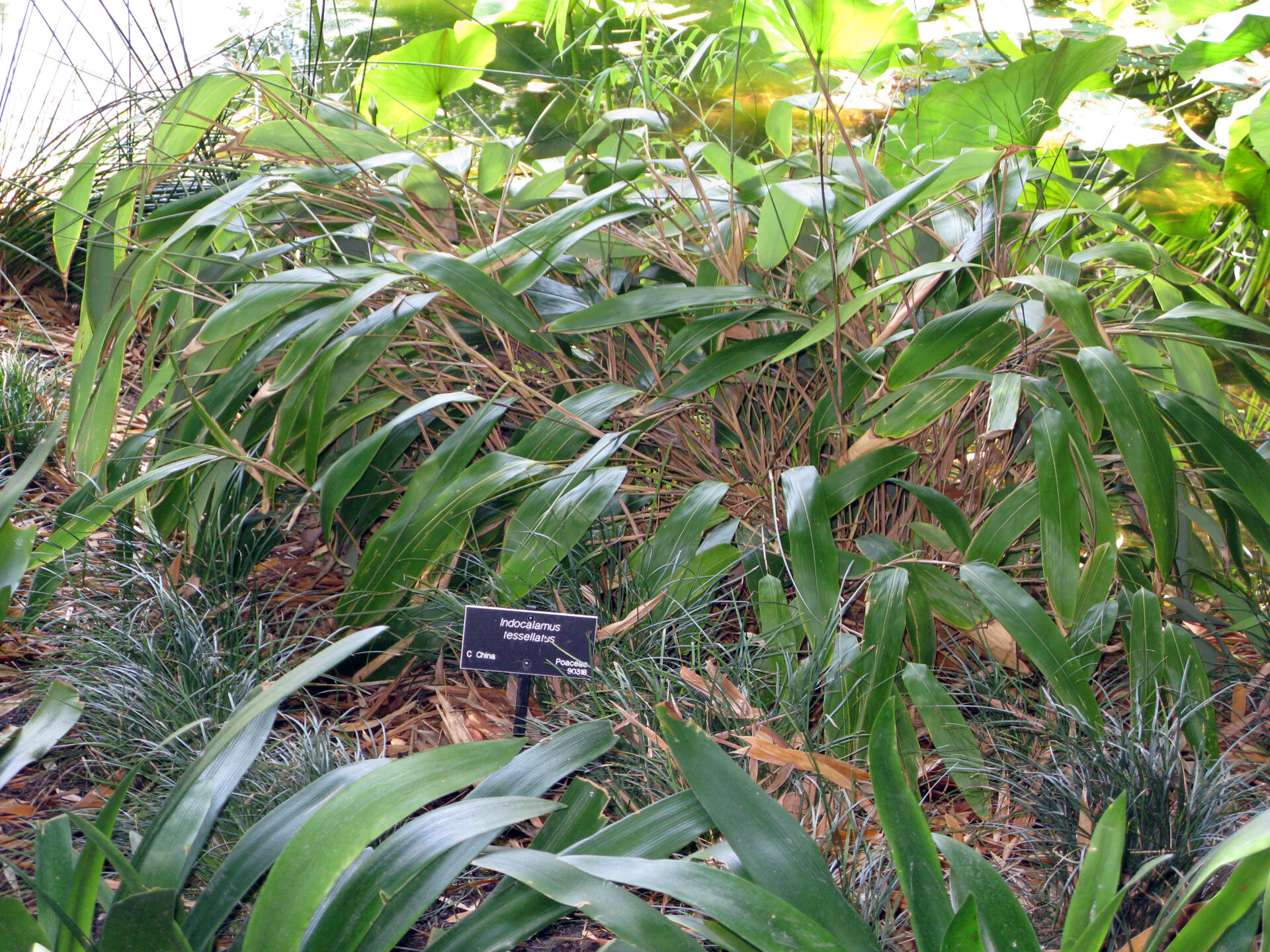
Indocalamus
Bamboo species of the genus Indocalamus are native to China, Japan, Vietnam and Sri Lanka. The name Indocalamus derives from the Latin words "indo", of India (in its ancient sense: extending from the East Indies to China), and "calamus" (Greek: kalamos) reed.
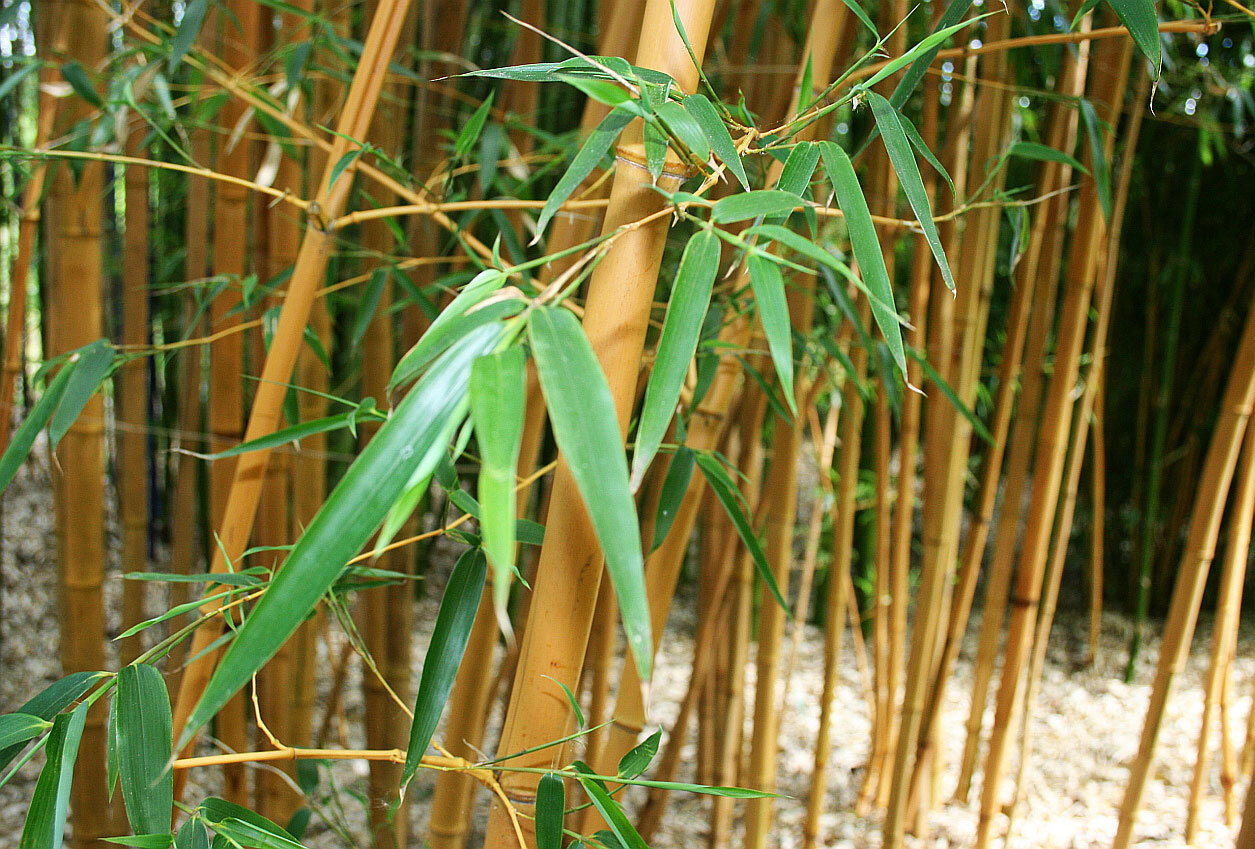
Phyllostachys
Phyllostachys comes from 'phyllon', meaning leaf, and 'stachys', meaning spike. In China, where this bamboo grows native, it is also called Gangzhu Shu, meaning firm bamboo genus.

Pseudosasa
20 bamboo species are currently assigned to the genus Pseudosasa. These bamboos are small to medium running bamboo, originating in Japan, China, and Korea.

Semiarundinaria
Semiarundinaria is a genus of tall or shrubby running bamboos. The species are found in temperate and subtropical regions of China and Japan.
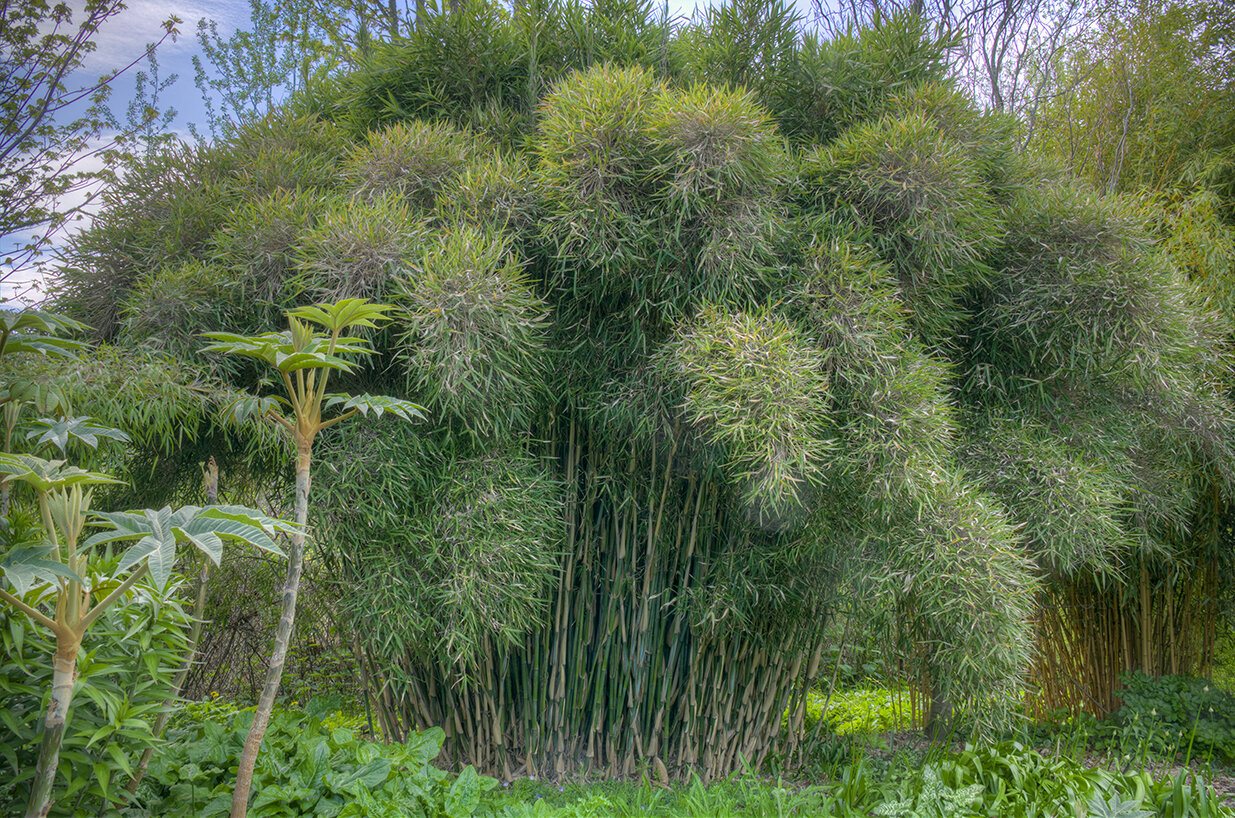
Thamnocalamus
Thamnocalamus is a genus of clumping bamboo. The generic name, derives from the Greek "thamnos" (thicket, shrubbery), and "kalamos" (Latinised "calamus", reed, cane), referring to the habit of the species.

